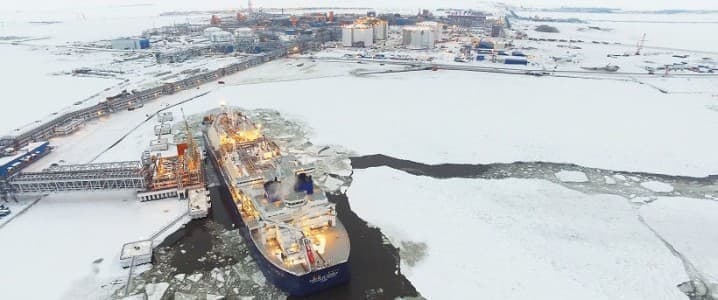As the United States is pressuring Europe to cut off energy revenues for Russia, the European Union took a step to bring forward a ban on imports of Russian LNG a year earlier than planned.
The European Commission on Friday proposed its 19th sanctions package against Russia over its war in Ukraine. This package, which will need unanimous approval from all EU member states, accelerates the timeline for phasing out Russian LNG imports into the bloc—from the end of 2027 to January 1, 2027, one year earlier than planned.
“Russia’s primary source of income to finance its illegal war is still energy exports,” Kaja Kallas, European Commission Vice-President and the EU’s foreign policy chief, said in a statement.
To cut Russia’s energy exports, the Commission now proposes a full prohibition of Russian LNG imports by January 2027. The sanctions package also removes all remaining exemptions on Russian oil producers Rosneft and Gazprom Neft, and expands sanctions on Russia’s shadow fleet and its enablers, including 118 new vessels. Related: China’s Russian Crude Imports Slip in August, Shipping Tells a Different Story
“Despite weeks of diplomatic efforts, Russia only intensifies its aggression and is now breaching the European Union’s own borders,” Kallas said.
“Russia’s aggression cannot continue unchecked. Our message is clear: We will intensify pressure on Russia with increasingly hard-hitting sanctions, coupled with military support for Ukraine, until Russia accepts a genuine, just and lasting peace.”
European Commission President Ursula von der Leyen said upon proposing the new sanctions package that “Russia’s war economy is sustained by revenues from fossil fuels. We want to cut these revenues.”
“It is time to turn off the tap. We are prepared for this. We have been saving energy, diversifying supplies and investing in low-carbon sources of energy like never before,” von der Leyen added.
Moreover, the EU is now “going after those who fuel Russia’s war by purchasing oil in breach of the sanctions. We target refineries, oil traders, petrochemical companies in third countries, including China,” the Commission president noted.
Before the package was announced, the Kremlin spokesman, Dmitry Peskov, said that the EU “mistakenly believes that ramping up sanctions would somehow change Russia’s policy.”
But the EU, as well as the U.S., believes that cutting off the vital energy revenues would force a collapse of Russia’s economy and deplete the war chest for Putin to continue the war in Ukraine.
The United States has intensified pressure on the EU to cut off imports of Russian energy to accelerate revenue declines for the Kremlin in coordinated efforts to force Putin to negotiate peace in Ukraine. The Trump Administration is also intensifying pressure on its EU and G7 partners to act with tariffs on India and China over their continued imports of Russian crude oil.
Many EU member states aren’t keen to slap tariffs on India and China; that’s why the EU is now targeting a faster phase-out of Russian LNG, sources familiar with the plan told Bloomberg.
The U.S. has a replacement solution to Russia’s LNG in Europe—America’s own LNG export industry. The United States, the world’s largest exporter of the super-chilled fuel ahead of Qatar and Australia, is strongly promoting LNG project development and exports under the Trump Administration.
Earlier this month, U.S. Energy Secretary Chris Wright said the EU could accelerate the phase out of natural gas imports from Russia and end purchases within six to 12 months by replacing them with American LNG.
“The faster we phase out, the sooner you put pressure on Russia,” Secretary Wright told Reuters after meeting with EU officials in Brussels.
“On the U.S. side, we could do it faster, and I think it would be good if those dates were moved up even more. I don’t know that that’s going to happen, but that was dialogued,” Wright said, referring to his meeting with EU Energy Commissioner Dan Jorgensen.
By Tsvetana Paraskova for Oilprice.com
More Top Reads From Oilprice.com
